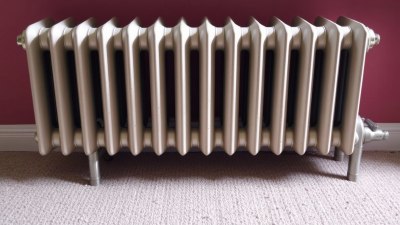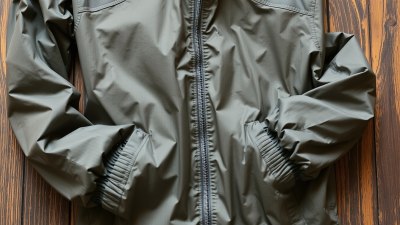What Heat Does to Your Focus Level After Lunch
Explore how heat impacts your concentration and cognitive function after lunch, with insights on managing focus during warm afternoons.

After enjoying a satisfying lunch on a warm day, many people notice a decline in their ability to concentrate. This common experience is influenced by various factors, one of which is heat. Understanding how heat affects your focus levels post-lunch can help you take steps to maintain productivity throughout the afternoon. This article will delve into the physiological and psychological effects of heat on cognitive performance, especially after eating, and provide practical strategies to stay sharp even on the hottest days.
The Physiology of Heat and Cognitive Function
Heat can affect the human body and brain in significant ways. When external temperatures rise, your body works hard to regulate its internal temperature through processes like sweating and increased blood flow to the skin. This thermoregulation requires energy and can redirect blood flow from the brain to the skin, potentially impacting mental functions such as attention, memory, and decision-making.
Research in environmental physiology has shown that elevated temperatures can impair cognitive performance, particularly on tasks requiring sustained attention and complex processing. The brain's prefrontal cortex, responsible for executive function, is especially vulnerable to heat stress. This can lead to slower reaction times and decreased accuracy on mental tasks.
The Post-Lunch Dip and Heat Synergy
The phenomenon known as the post-lunch dip is a well-documented period during the early afternoon where alertness tends to decline. This dip is related to circadian rhythms and is often exacerbated by the type and amount of food consumed. Heavy or carbohydrate-rich meals can induce sleepiness by increasing blood flow to the digestive tract and promoting the release of sleep-regulating hormones like melatonin.
When combined with high ambient temperatures, the post-lunch dip can be more pronounced. Heat tends to intensify feelings of lethargy and decrease motivation, making it harder to focus. The body's dual efforts to digest food and cool down can strain physiological resources, reducing the availability of energy for cognitive tasks.
Heat-Induced Dehydration and Cognitive Decline
One key factor linking heat to decreased focus is dehydration. Warm environments increase sweating, and if fluid intake does not compensate, mild dehydration can occur. Even a 1-2% loss in body water has been shown to impair cognitive functions including concentration, alertness, and short-term memory. Dehydration impacts the brain by reducing blood volume and oxygen delivery, which further compromises mental performance.
After lunch, people often neglect hydration because of the satiation feeling following a meal or simply due to disrupted routines. This neglect in warm conditions exacerbates dehydration, making the post-lunch focus slump worse.
Psychological and Environmental Influences
Beyond physiological effects, heat can influence mood and stress levels, which in turn affect concentration. High temperatures can increase irritability, fatigue, and discomfort, negatively impacting cognitive efficiency. When individuals feel physically uncomfortable, their motivation and ability to maintain focus decrease.
The work environment also plays a critical role. Poorly ventilated or air-conditioned spaces during warm afternoons can amplify heat-related cognitive decline. Conversely, comfortable temperature control and adequate airflow help mitigate these effects.
Strategies to Maintain Focus After Lunch in Heat
Understanding how heat impairs focus allows for targeted interventions to improve afternoon productivity. Here are practical steps to consider:
1. Optimize Your Meal: Choose lighter meals with balanced macronutrients to avoid heavy digestion demands. Incorporate lean proteins, vegetables, and whole grains to sustain energy without causing excessive fatigue.
2. Stay Hydrated: Drink water before, during, and after lunch to offset heat-induced fluid loss. Avoid excessive caffeine and sugary drinks, which can contribute to dehydration and energy crashes.
3. Adjust Your Environment: Use fans or air conditioning to create a cooler workspace. If possible, open windows for cross-ventilation or work near cooler areas during hotter months.
4. Schedule Tasks Wisely: Plan demanding cognitive tasks for the morning or cooler parts of the day. Reserve lower-effort activities for post-lunch periods when focus naturally wanes.
5. Take Breaks and Move: Short breaks involving light physical activity can help re-energize the brain and improve circulation, counteracting lethargy induced by heat and digestion.
6. Practice Mindfulness and Relaxation: Techniques like deep breathing or brief meditation sessions help reduce heat-related stress and improve concentration.
Workplace and Policy Considerations
Employers and organizations can support productivity by acknowledging the impact of heat on focus. Implementing flexible work schedules, ensuring adequate climate control, and providing hydration stations are effective measures. During hot seasons, shifts might start earlier or include more frequent breaks.
Education on managing post-lunch focus and heat stress can empower employees to adopt healthier habits. Integration of ergonomic and environmental assessments in workplaces helps optimize conditions for cognitive performance.
Scientific Evidence Supporting Heat and Focus Link
Several studies underscore the relationship between ambient temperature and cognitive function. For example, experiments have shown that participants working in rooms with temperatures above 30°C perform worse on memory and attention-based tasks compared to those in cooler environments.
Another study demonstrated that dehydration correlates with decreased alertness and increased reaction times. The amplification of postprandial sleepiness by heat has been observed in both laboratory and real-world settings, indicating a robust connection.
These findings highlight the importance of considering environmental temperatures when designing work or study schedules, particularly in regions with hot climates or during summer months.
Personal Experiences and Adaptations
Many people report increased tiredness and reduced mental clarity after lunch on hot days. Anecdotal evidence aligns with scientific data, suggesting a universal experience. People often naturally modify their behavior, such as resting more, reducing workload, or seeking cooler environments in response to thermal discomfort.
Some cultures incorporate siestas or afternoon breaks, effectively adapting to heat-related decreases in productivity. Understanding these customs may offer insights into managing focus in modern settings.
Heat exerts a notable influence on your ability to concentrate after lunch, primarily through physiological stress, dehydration, and increased fatigue. Awareness of these effects and employing strategies such as proper hydration, meal planning, environmental adjustments, and task scheduling can significantly enhance afternoon productivity.
Embracing changes aligned with your body’s natural rhythms and environmental conditions prepares you to maintain sharper focus despite temperature challenges. Taking proactive steps allows you to maximize cognitive functioning and stay efficient during warm afternoons.
Maintaining good hydration habits, optimizing your work environment, and pacing yourself thoughtfully after meals are simple yet powerful measures. These actions will help ensure that heat does not compromise your mental performance, letting you stay alert and productive even when temperatures soar.











